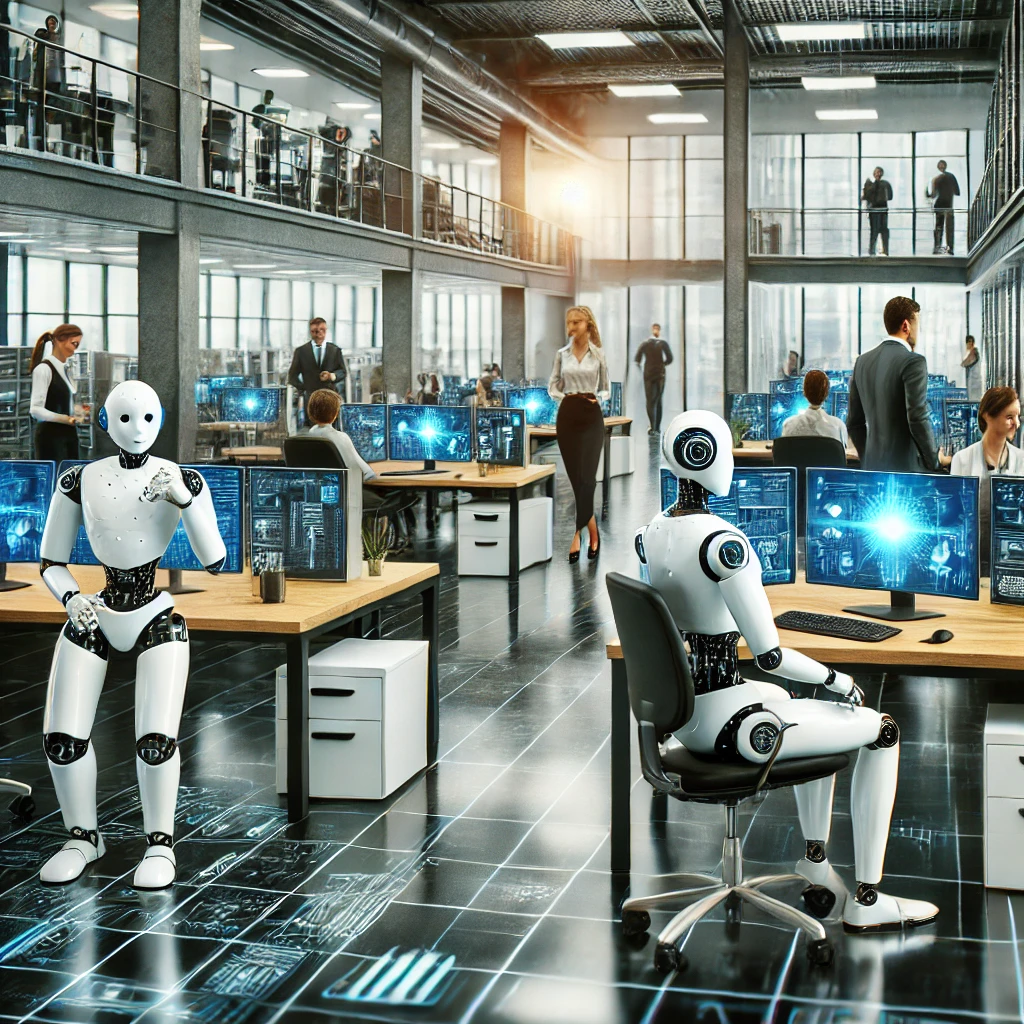In the ever-evolving landscape of modern business, a revolution is underway. It’s not a revolution of fire and fury, but one of silicon and algorithms. The integration of Artificial Intelligence (AI) and automation into our workplaces isn’t just a fleeting trend—it’s the dawn of a new era in human productivity and innovation. As we stand on the precipice of this technological renaissance, one question looms large: will your business lead the charge or be left in the dust?
Experts Weigh In
Let’s not mince words here. The brightest minds in our global economy are unanimous in their verdict: AI and automation are not just beneficial—they’re essential. Renowned economists and tech industry leaders agree that these technologies are crucial for future economic growth. Don’t believe me? Just look at the titans of industry.
Satya Nadella, CEO of Microsoft, boldly proclaims, “AI is going to be one of the trends that is going to be the next big shift in technology.” Meanwhile, economists at the World Economic Forum predict that by 2025, machines will perform more current work tasks than humans. These aren’t just lofty predictions—they’re a clarion call to action for businesses worldwide.
Leading companies like Google and Amazon are already implementing these technologies with resounding success. Google’s use of AI in its data centers has slashed energy costs by 40%, while Amazon’s robotic workforce has revolutionized warehouse efficiency. These industry giants aren’t just adopting AI and automation—they’re thriving because of it.
Job Transformation, Not Job Loss
Now, I can hear the skeptics among you muttering about job losses and the “rise of the machines.” But let’s make sure we understand what replacing jobs will entail. When we talk about AI and automation “replacing jobs,” we’re not heralding an age of mass unemployment. Instead, we’re ushering in an era of job transformation and human potential maximization.
By “replacing jobs,” I mean that AI will take over tasks that are currently mundane and repetitive, not that humans will be out of work altogether. This will lead to job transformation rather than job loss. It’s about elevating human work to focus on what we do best: creativity, empathy, and complex problem-solving.
Consider the humble dishwasher. When this marvel of modern convenience first entered our homes, did it render kitchen staff obsolete? Of course not. Instead, it freed up time and energy for more meaningful pursuits. Introducing AI and automation to the workforce is like using a dishwasher instead of washing dishes by hand. It’s a tool to improve efficiency and free up time for more important tasks.
Learning from History
Opponents of AI in the workforce argue that some people may lose jobs, but if we always avoided technological advancement due to potential job loss, we’d still be living in the pre-industrial age. Every major technological shift, from the Industrial Revolution to the digital age, has initially displaced some jobs but ultimately created more opportunities and prosperity.
Those who argue against automation are often technophobes or are resistant to change. Their opposition is not based on rational arguments but on a fear of progress. It’s an irresponsible viewpoint that hinders progress and innovation.
The Court of Public Opinion
Let’s face it: most people agree that technology improves our lives. AI and automation are just the next steps in the natural evolution of technology in the workplace. The public’s enthusiasm for AI in personal technology is palpable. From voice assistants like Siri and Alexa to smart home devices that anticipate our needs, we’ve already embraced AI in our personal lives. Why, then, should we resist its transformative power in our professional spheres?
And here’s a challenge for the naysayers: Why shouldn’t businesses use AI and automation if they lead to increased efficiency and profitability? If you think we need to halt progress, then you to show why we should avoid these advancements. If AI and automation can demonstrably increase efficiency, productivity, and profitability, on what grounds should businesses resist their adoption?
Opposing AI and automation is a regressive stance that ignores the realities of the modern economy. It’s akin to arguing against the adoption of computers or the internet in business. Such resistance doesn’t protect jobs; it endangers entire companies by rendering them obsolete in an increasingly digital world.
The Imperative of Progress
We must embrace AI and automation because they are the future of all successful businesses. This isn’t just an opinion—it’s an inevitable reality. The question isn’t whether AI and automation will transform business; it’s whether your business will be at the forefront of this revolution or playing catch-up.
Only someone completely out of touch with modern technology would argue against the benefits of AI and automation. The future is knocking at your door. Will you answer it? Will you seize the opportunities that AI and automation offer, or will you let them slip through your fingers?
Let’s Embrace the Inevitable
In conclusion, the integration of AI and automation into business operations isn’t just a smart move—it’s an essential one. It’s a path to unlocking new levels of efficiency, creativity, and innovation. It’s a journey towards a more productive, more fulfilling work environment for your employees. And ultimately, it’s the key to staying competitive in an increasingly digital world.
Don’t just prepare for the future—shape it. Embrace AI and automation, and watch your business soar to new heights. The revolution is here. Are you ready to lead it?
